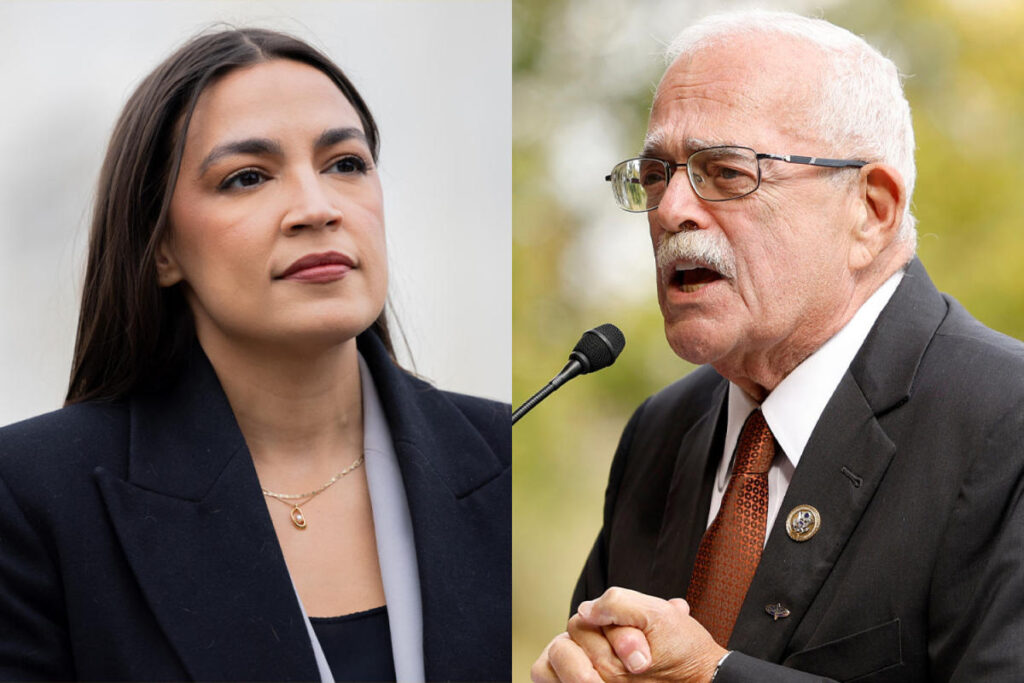In a key meeting of the House Democratic Steering and Policy Committee, a powerful panel of congressional Democrats recommended Rep. Gerry Connolly from Virginia over Rep. Alexandria Ocasio-Cortez from New York for the prestigious position of the top Democrat on the House Oversight Committee. This decision reflects a preference for a more senior member, as Connolly has served in Congress since 2008 and is recognized as an experienced politician within the party. The closed-door vote concluded with Connolly receiving 34 votes against Ocasio-Cortez’s 27, signifying the panel’s alignment with the broader party leadership, particularly Minority Leader Hakeem Jeffries. This position became vacant after Rep. Jamie Raskin of Maryland challenged Rep. Jerry Nadler of New York for a role on the Judiciary Committee, prompting Nadler to step aside.
A notable turn of events arose as Rep. Angie Craig from Minnesota emerged as the chosen candidate for the top Democratic role on the Agriculture Committee, outpacing two senior rivals, Rep. Jim Costa and Rep. David Scott. Craig secured 34 votes, compared to Costa’s 22 and Scott’s five, even though Scott had been leading the committee since 2021. This outcome was unexpected, particularly since both Costa and Scott have extensive congressional experience. Additionally, the steering committee opted for senior member Rep. Jared Huffman from California over junior Rep. Melanie Stansbury for the top Democratic position on the Natural Resources Committee, with a score of 44 to 17 in favor of Huffman.
The overall results from this meeting hint at a complex dynamic concerning seniority within the Democratic Party as it grapples with the increasing urge for generational change. Although the panel recommended more experienced candidates like Connolly and Huffman, Craig’s victory illustrates that younger lawmakers are still making inroads. Connolly’s situation is especially poignant, as he is battling esophageal cancer while maintaining significant support within the party. He has established himself as a key player on the Oversight Committee, showcasing the balance Democrats are trying to strike between experience and new perspectives.
Conversely, in the Natural Resources Committee, Huffman stands to potentially usher in a new phase of leadership, as he would be the second most senior Democrat at 60 years old. His prior fearless challenge against the long-standing leader, Rep. Raul Grijalva, indicates a willingness amongst more junior members to contest established positions within the party. However, the Contrasts in age and service length in the Agriculture Committee emphasize the unpredictable nature of these internal contests, with Craig capitalizing on the leadership void left by Scott amid his health issues.
As these votes indicate a gradual shift, they also reveal a delicate balance within the Democratic Party, which remains in the minority heading into the new Congress. The role of the committee chairs could become increasingly influential should Democrats regain control of the House during the 2026 midterm elections; thus, these recommendations are significant, setting the stage for what could be a pivotal period in congressional dynamics. While the full Democratic caucus is anticipated to endorse the steering committee’s choices, historical precedents exist where the broader group has chosen to override the panel’s recommendations.
In summary, the recent developments in committee leadership within the Democratic caucus showcase both the evolving landscape of party politics and the ongoing struggles between seniority and fresh ideas. Connolly’s nomination underscores the preference for seasoned experience in certain roles, while Craig’s unexpected rise symbolizes the desire for change among newer lawmakers. The interplay of these dynamics reflects broader trends not only within the House but also in how the Democratic Party positions itself for potential future leadership and their approach to governance in a politically divided country. As such, the results of these committee selections will likely influence the strategic choices made as the Democratic Party seeks to engage with a diverse electorate in upcoming electoral contests.

